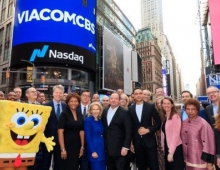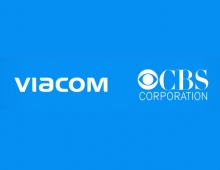
Cablevision Sues Viacom Over High Fees For Little-watched Channels
Cablevision filed an antitrust lawsuit today against Viacom, in federal court in Manhattan, for forcing Cablevision to carry and pay for lesser-watched networks its customers do not want.
Cablevision's suit contends that Viacom abused its market power over commercially critical networks, including popular networks such as Nickelodeon, Comedy Central, and MTV, to coerce Cablevision into carrying the 14 far less popular ancillary channels.
Cablevision says Viacom coerced the company by threatening to impose massive financial penalties unless Cablevision complied with Viacom's demands. Cablevision adds that Viacom's conduct impairs competition by making Cablevision pay for and carry networks that many subscribers do not want to watch, while other networks are excluded from distribution, preventing Cablevision from being able to differentiate its services and harming subscribers.
"The manner in which Viacom sells its programming is illegal, anti-consumer, and wrong," Cablevision said in a statement. "Viacom effectively forces Cablevision's customers to pay for and receive little-watched channels in order to get the channels they actually want. Viacom's abuse of its market power is not only illegal, but also prevents Cablevision from delivering the programming that its customers want and that competes with Viacom's less popular channels."
Cablevision's antitrust lawsuit also asserts that Viacom has engaged in unlawful "block booking," which is a form of tying that conditions the sale of a package of rights on the purchaser's taking of other rights.
In response to the lawsuit, Viacom said that "these arrangements have been upheld by a number of federal courts and on appeal."
The two companies signed a long-term programming agreement in December 2012 for Cablevision to carry Viacom's networks for an undisclosed sum.
Cablevision is seeking a number of remedies including a declaratory relief voiding the December 2012 carriage agreement between the two companies; a permanent injunction barring Viacom from conditioning carriage of any or all of its core networks on Cablevision's licensing any or all of Viacom's ancillary networks; a requirement that Viacom permit Cablevision to carry the core networks and ancillary products on terms pending negotiation of a new, lawful agreement; treble damages and legal fees.
Cablevision says Viacom coerced the company by threatening to impose massive financial penalties unless Cablevision complied with Viacom's demands. Cablevision adds that Viacom's conduct impairs competition by making Cablevision pay for and carry networks that many subscribers do not want to watch, while other networks are excluded from distribution, preventing Cablevision from being able to differentiate its services and harming subscribers.
"The manner in which Viacom sells its programming is illegal, anti-consumer, and wrong," Cablevision said in a statement. "Viacom effectively forces Cablevision's customers to pay for and receive little-watched channels in order to get the channels they actually want. Viacom's abuse of its market power is not only illegal, but also prevents Cablevision from delivering the programming that its customers want and that competes with Viacom's less popular channels."
Cablevision's antitrust lawsuit also asserts that Viacom has engaged in unlawful "block booking," which is a form of tying that conditions the sale of a package of rights on the purchaser's taking of other rights.
In response to the lawsuit, Viacom said that "these arrangements have been upheld by a number of federal courts and on appeal."
The two companies signed a long-term programming agreement in December 2012 for Cablevision to carry Viacom's networks for an undisclosed sum.
Cablevision is seeking a number of remedies including a declaratory relief voiding the December 2012 carriage agreement between the two companies; a permanent injunction barring Viacom from conditioning carriage of any or all of its core networks on Cablevision's licensing any or all of Viacom's ancillary networks; a requirement that Viacom permit Cablevision to carry the core networks and ancillary products on terms pending negotiation of a new, lawful agreement; treble damages and legal fees.





















